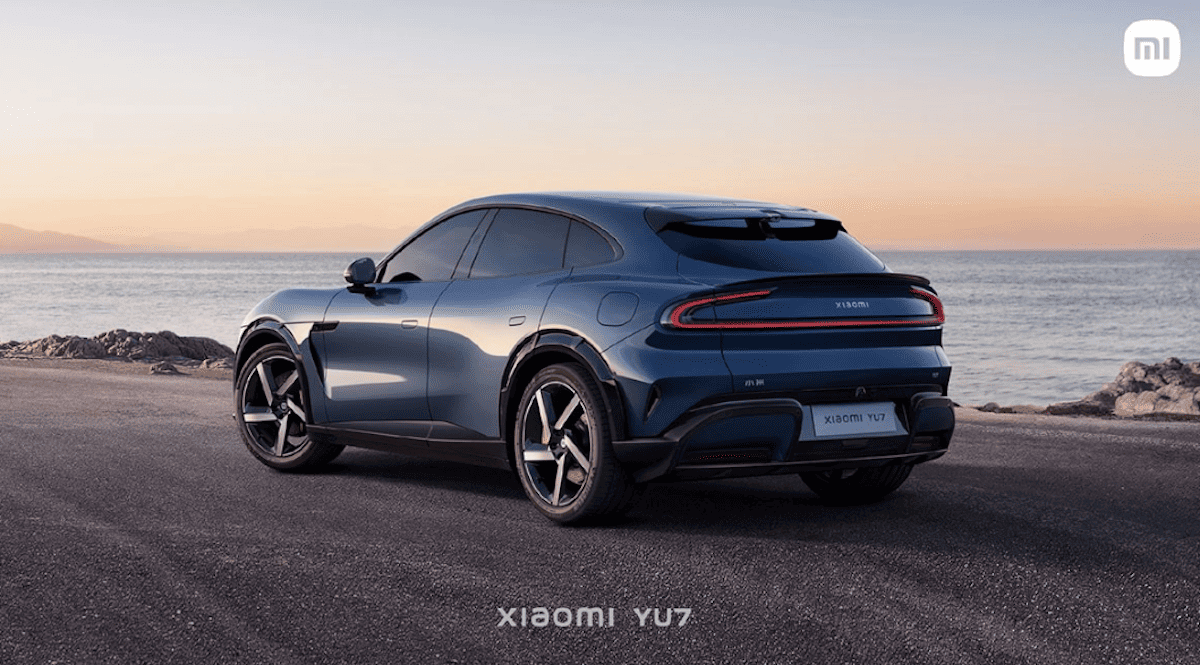
Xiaomi Enters the EV Market with a Bold Tesla Challenger
Even before hitting the market, it already has a nickname: the “Anti-Tesla SUV.” Tech giant Xiaomi is about to release its new all-electric SUV, the YU7, which Chinese analysts are calling a direct rival to Tesla’s Model Y—currently the best-selling electric vehicle in China. Lei Jun, Xiaomi’s founder, announced that the official launch will take place on Thursday, May 22, alongside other high-profile product debuts like the Xring O1 mobile chip and the Xiaomi 15S Pro smartphone.
This move into the battery electric vehicle (BEV) sector follows Xiaomi’s 2023 launch of the SU7 sedan, marking a significant expansion for a company once known primarily for smartphones, smart home appliances, and tech gadgets.
Fatal Crash Raises Questions: Can Xiaomi Be Trusted?
Industry analysts believe Xiaomi’s SUV has the potential to outsell Tesla in China, largely because the SU7 sedan has already surpassed the Model 3 in monthly sales.
However, a fatal crash in March involving an SU7 model has shaken public confidence. Although the incident’s details remain under investigation, concerns have mounted over the safety and reliability of Xiaomi’s autonomous driving systems.
In response, Chinese regulators have ramped up scrutiny of autonomous driving technologies. As The Paper, a state-affiliated media outlet, reported, “this crisis not only questions SU7’s credibility but also exposes deeper structural issues in the new-generation EV sector.”
Adding to the company’s challenges are unusually long wait times. A Chinese blogger revealed that customers may wait nearly a year to receive their vehicle after placing an order. Xiaomi has not responded to international media requests for comment, but Lei Jun admitted this past month has been “the most difficult period” since founding the company.
What to Expect from the Anti-Tesla SUV
According to documents from China’s Ministry of Industry and Information Technology, the YU7 SUV measures 4,999 mm in length, 1,996 mm in width, and 1,600 mm in height, with a 3,000 mm wheelbase. The vehicle’s design has sparked debate, with many noting similarities to the Ferrari Purosangue.
The YU7 will come in multiple configurations: a single rear-wheel drive motor rated at 235 kW paired with a 96.3 kWh LFP battery, or a dual-motor all-wheel drive version. Options for the dual-motor setup include either a 130 kW front and 235 kW rear motor, or a more powerful 220 kW front and 238 kW rear configuration. The highest-performing model will feature a 101.7 kWh NCM battery and offer a maximum range exceeding 820 km (under the CLTC cycle).
Inside, the SUV reportedly forgoes a traditional digital dashboard in favor of a Panoramic Head-Up Display that projects key driving data directly onto the lower windshield.
A Tech War That Goes Beyond EVs
Xiaomi’s rivalry with Tesla is only one part of a broader tech arms race. In the smartphone market, the company is locked in fierce competition with Huawei and Apple. But the real battlefield may be silicon: chip design and production. Each company is striving for greater independence, crafting proprietary chips to build integrated ecosystems and enhance user experience, whether on a smartphone or behind the wheel.
For Xiaomi, which now has a stake in both smartphones and BEVs, the future lies in convergence. As chips, mobile devices, and electric vehicles grow increasingly interconnected, the company is betting that its ecosystem can deliver more than the sum of its parts.